A fugitive
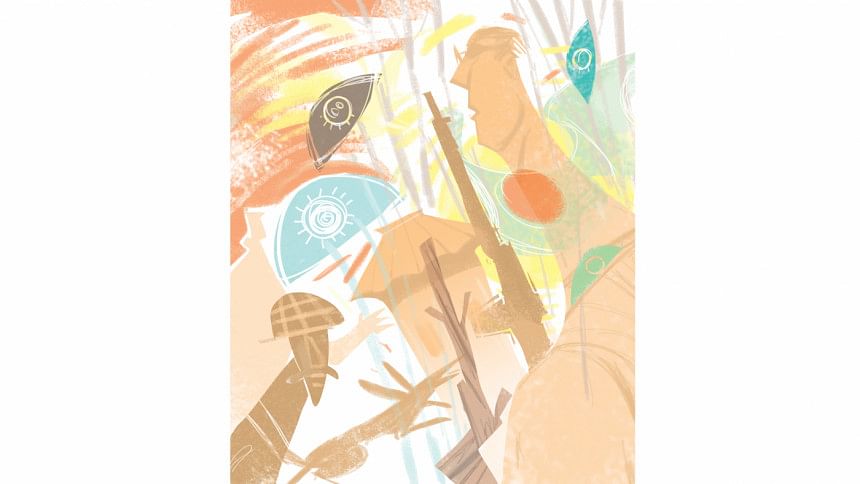
(Translated by Rifat Munim)
It was noontime when I arrived home
the sun was shining bright,
my shadow, spinning on and on, is reduced
to a thin line.
No one could recognise me.
When lighting a cigarette on the train
I borrowed a match from someone
when boarding a train at the Mahkuma station
someone wanted to pull me into an embrace,
or when someone screamed his surprise
placing his hand on my shoulder,
I reminded everyone of resemblance between people
even when they are not related.
No one could recognise me. Sitting in front of me,
a political leader, who was a communist, kept glancing at my face;
yet he too couldn't.
As soon as I alighted at Barahatta I had tea at Rafiz's stall;
I was truly surprised to see Rafiz did not recognise me
even when adding some extra sugar to my tea.
After five long years I was returning to my unaltered village;
down the same dilapidated road, down the same thin strip of dark soil
marking land boundaries
I was returning to my village after so long!
It was noontime when I arrived in my village
the sun was shining bright
the wind was whizzing by.
The house had changed a lot—
from corrugated iron sheets to pond water
from the flower garden to the cow pen
no trace of my childhood memory was to be found anywhere.
From atop a beli flower tree bending over
the veranda of the reading room
a laudoga snake flicked out its tongue to the sweltering noon.
Like stubble that grows spontaneously on a face
grass, undergrowth, pits, thickly grown forest of plants and trees
engulfed the house from all sides,
as if, mocking the civilisational foundation everywhere,
obstinate nature was ruling the roost here.
A fox was lying too close to a dog;
upon seeing me there,
one of them fled right away while another began
sniffing out a familiar smell perhaps, just like a checker along with
a cop tried to sniff out my identity at Tejgaon.
I was walking till I was rendered motionless by the sight of a tree:
An ashok tree, which was damaged in the 1962 storm—
the cool shade it provided once could effortlessly hide two people!
In the name of love, we once buried ourselves into the night
under its shade.
Her name was Bashonti, ah Bashonti!
She lived in Bihar now and bore her robber-husband four children.
The water in the pond rippled as a fish slapped the water with its tail
while a snake flashed its tongue again;
rattling the calm, placid, foolish village
an airplane flew westward
while I, knocking loudly on the door from the rear side of the house,
called: Ma.
The door which didn't open in a long time
the door which didn't hear any voice in a long time
that rusted door creaked open in the blink of an eye.
I had evaded arrest all this time; the detective branch
had failed to put me behind bars;
but under a sweltering sun in the month of Chaitra
with strong wind whizzing by
how easily I found myself imprisoned in my mother's embrace;
how easily I, that same person, became a child once again
upon looking at my mother's eyes.
Hiding me locked in a teary kiss,
crossing long stretches of feisty undergrowth,
Mother reached the pond to wash rice.
I took a look around and saw:
in the middle of two rooms
the image of Ganesh—the god of salvation and wisdom—
was replaced by Lenin; beside Father's ledger was Karl Marx
while a gap revealed by a broken portion of the almirah mirror
was bridged by a frazzled image of Krupskaya.1
Ma was walking back from the pond, Father would return
in the evening from the district town—a bag containing provisions
would be slung over his shoulder as usual.
Hearing about my arrival, Sister-in-law would come to visit soon;
she'd implore me again to get married.
Hearing about my arrival,
from Jashmadhob would come NAP leader Yasin.
Walking three miles from Rasulpur would come Aditya,
in the dead of night Abbas would turn up from Amtala,
carrying his deadly firearm.
All of them would ask about the situation in Dhaka:
What lies ahead of us?
Where is Ayub Khan now?
Is Sheikh Mujib making a mistake?
How long will the arrest warrant hang over my head?
I'd say nothing in reply; as they stared at me
I'd just gaze back into their eyes and observe in the lines of their faces
the different futures lying ahead of us.
Darkness would descend on their anxious faces
while I, removing the pain of incapacitated desire with a scream,
would say:
"I don't know anything about these,
I don't understand any of this."
Rifat Munim is an editor, journalist, bilingual writer, translator and essayist.
1Legendary Marxist political leader who worked closely with Lenin, and later with Stalin and Trotosky.

 For all latest news, follow The Daily Star's Google News channel.
For all latest news, follow The Daily Star's Google News channel. 

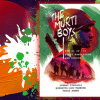

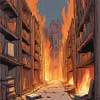
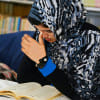
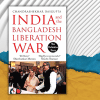


Comments